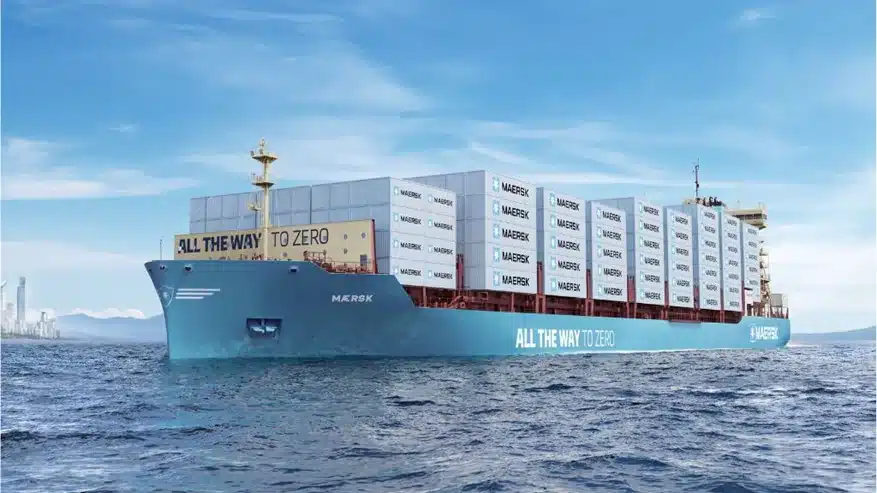Maersk Calls on Europe to Ban Fossil-Fueled Ships
Maersk Calls for EU Ban on Fossil-Fueled Ships by 2040

Copenhagen, Denmark – May 23, 2024 A.P. Moller: Maersk, a global leader in integrated container logistics, has issued a call to European Union policymakers to implement a comprehensive ban on fossil-fueled ships by 2040. This bold move aims to accelerate the maritime industry’s transition to sustainable energy sources and address the urgent climate crisis.
Maersk’s CEO, Vincent Clerc, unveiled the proposal during the European Shipping Week, emphasizing the critical role of regulatory frameworks in fostering innovation and investment in green technologies. “We believe that decisive action is necessary to drive the maritime sector towards a zero-carbon future. A ban on fossil-fueled ships within European waters will not only reduce emissions but also stimulate the development of alternative fuels and propulsion systems,” Clerc stated.
The call to action comes as part of Maersk’s broader sustainability strategy. The company has already committed to achieving net-zero greenhouse gas emissions by 2040 and has invested heavily in the research and development of green technologies, including methanol and ammonia-powered vessels.
“Shipping accounts for approximately 3% of global CO2 emissions. This may seem small, but it is significant when considering the industry’s projected growth. We must act now to ensure that this growth does not come at the expense of our planet,” Clerc added.
Maersk’s proposal aligns with the European Union’s Green Deal, which targets climate neutrality by 2050. By advocating for a 2040 ban, Maersk hopes to encourage other industry players and stakeholders to expedite their green transition plans. The company believes that early adoption of stringent regulations will level the playing field and ensure a fair, competitive market for all.
In addition to its own efforts, Maersk is actively collaborating with other industry leaders, governments, and non-governmental organizations to create a robust, scalable infrastructure for green shipping. This includes investments in renewable energy production, fuel infrastructure, and the development of new technologies.
“We cannot achieve these goals alone,” Clerc remarked. “It will require unprecedented collaboration across the entire value chain. From fuel producers to port authorities and shipbuilders, everyone must play a part in this transformative journey.”
As part of its advocacy, Maersk plans to engage with EU policymakers and maritime stakeholders to draft a clear, actionable roadmap for the fossil-fueled ship ban. The company is optimistic that, with collective effort and commitment, the maritime industry can lead the way in global decarbonization efforts.
About Maersk
A.P. Moller-Maersk is a leading global integrator of container logistics, dedicated to connecting and simplifying trade. With a commitment to sustainability and innovation, Maersk strives to deliver efficient, reliable, and environmentally responsible services to customers worldwide.
